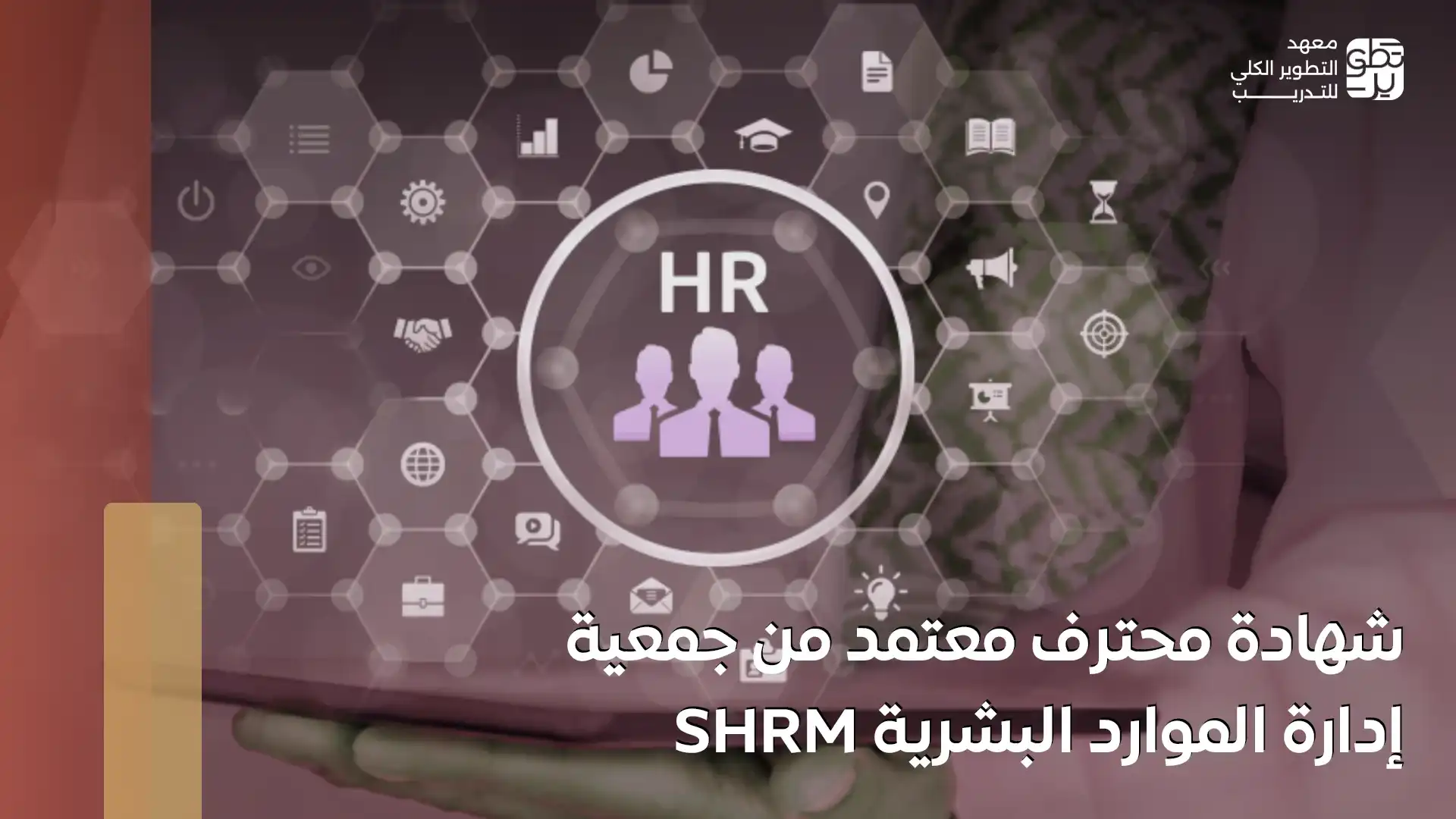
If you're considering studying a Diploma in Human Resource Management and want to know the content of the courses you'll study, this article will help you form a clear idea.
We'll give you an overview of some of the core courses in the Human Resource Management Diploma program, along with highlighting the key pros and cons in the HR field, so you're fully informed before making your decision.
Human Resource Management Diploma Courses
The Human Resources Management Diploma program offers students a variety of courses that combine general skills, foundational knowledge, and specialized expertise. The HR diploma is the ideal choice for meeting the needs of companies looking to improve employee management and develop work teams, as well as for individuals seeking to enhance their personal skills and advance in their career paths.
The Human Resources specialization courses are designed to provide students with the scientific and practical foundation needed to work efficiently in various HR fields. These courses include:
Basic and General Courses
These courses focus on providing the essential foundation and general knowledge that an HR specialist needs at the start of their career. During these courses, fundamental concepts and principles are taught, which serve as the basis for other HR specialties.
- Development of HR Specialist Skills
- Human Resources Planning
- Business Ethics
- Organizational Behavior
- Principles of Economics
- English Language
- Principles of Management
- Computer Skills
- Principles of Accounting and Financial Reporting
- Communication Skills
Specialized and Applied Courses
These courses are related to specific areas where HR specialists are required to apply knowledge and use advanced tools and skills. It focuses on learning how to implement and apply skills in a practical and professional manner.
- Job Analysis and Classification Methods
- Human Resource Management
- Designing Compensation and Incentive Systems
- Basics of Mathematics and Statistics
- Applied Training
We can’t cover all the details of each course, but we’ll provide an overview of some of them below to give you a sense of the course content.
English Language Course in Human Resource Management Diploma
This course in the HR Diploma program aims to enhance the student's English language skills in a comprehensive manner, supporting their ability to communicate effectively in the workplace and understand other course materials. By the end of the course, students will be able to:
- Speak fluently in various situations, both orally and in writing.
- Understand and analyze simple written texts with full awareness.
- Learn essential and frequently used vocabulary and apply it in correct sentences.
- Master grammar rules and apply them in writing and conversation.
- Develop listening skills by distinguishing between main ideas and details in conversations and texts.
- Improve speaking skills through short dialogues and daily life simulations.
- Handle texts quickly and accurately using contextual clues to understand meanings and link information.
- Differentiate between various tenses and structures and formulate questions correctly.
Cooperative training registration at the Macro Development Training Institute provides you with the opportunity to apply what you’ve learned practically, helping you achieve your goals in the field of human resources.
Principles of Management in Human Resource Management Diploma
This course in the HR Diploma program introduces students to the theoretical framework and basic concepts of management, focusing on its key functions such as planning, organizing, leading, controlling, decision-making, and managerial ethics. It also discusses the social responsibility of managers and presents case studies that help students apply what they have learned in practical situations.
- Explain management functions, concepts, and theories.
- Discuss modern strategies and policies in organizations.
- Analyze internal environment and organizational culture.
- Apply management theories in real-life situations.
- Use management techniques and decision-making skills.
- Enhance responsibility in both professional and social contexts.
Human Resource Planning
This course in the HR Diploma program focuses on introducing students to the concept of HR planning and its crucial role in supporting administrative activities within organizations. It covers the phases and steps of the planning process, quantitative and qualitative methods used to forecast future workforce needs, and modern trends in this area.
It also discusses the challenges and barriers to effective planning and how to overcome them.
- Understand HR planning concepts and theories.
- Learn the essential phases and steps of the planning process.
- Identify methods used to forecast workforce needs.
- Recognize factors influencing the success or failure of planning.
- Apply various planning methods in workplace environments.
- Strengthen communication skills both orally and in writing.
- Promote self-learning and teamwork within the group.
Development of HR Specialist Skills
This course in the HR Diploma program aims to equip students with the basic and advanced skills needed by specialists in human resource management. It includes effective communication, negotiation, planning, organization, time and information management skills, as well as report writing and handling modern technologies. It also addresses the principles and standards of total quality and how to apply them in HR management.
Human Resource Management
This course in the HR Diploma program provides an essential introduction to the principles and practices of human resource management and its vital role in organizational success. It covers fundamental HR concepts such as recruitment and staffing, training and development, performance evaluation, and compensation and benefits management. It also highlights the importance of HR as a strategic element in the modern business environment.
Why Study a Diploma in Human Resource Management?
Human resource management is one of the most vital areas in any job or company. It’s the field responsible for managing the most important asset of any company: its employees. If you’re considering enrolling in this program, here are some of the key reasons why you’re on the right path:
- Boost Productivity: You can design effective training and evaluation programs to improve employee performance and productivity directly.
- Strong Communication Skills: You’ll learn how to communicate effectively with employees and managers alike, a crucial skill in implementing business strategies.
- Quick and Effective Problem Solving: HR specialists learn how to tackle organizational challenges and make informed decisions that support the stability of the organization.
These are just a few reasons why studying HR management is important, but no doubt, you’ll need to explore more on your own to make a well-informed decision about pursuing this field.
Pros and Cons of Working in Human Resources
Like any field, working in human resource management has positive aspects that offer opportunities for growth and influence, but it also comes with some challenges that require patience and flexibility. Here are the key pros and cons:
Pros of Working in Human Resources
- Attracting Talent: Contributing to the selection of the best employees and retaining them.
- Employee Development: Opportunities to improve performance and increase productivity through training.
- Performance Management: Continuously monitoring and evaluating work to increase efficiency.
- Legal Compliance: Protecting the company from legal risks and ensuring a fair work environment.
- Good Financial Returns: Competitive salaries that grow with experience and career progression.
Cons of Working in Human Resources
- Heavy Administrative Burden: Requires time and effort to handle tasks like recruitment and training.
- Resistance to Change: Difficulty in convincing employees or management to adopt new policies.
- Pressure of Neutrality: Balancing between management and employees causes tension and stress.
- Work Pressure: Difficult decisions like firing employees can be draining.
- Risk of Bias: Personal biases may affect fairness in recruitment or evaluation.
- Bureaucracy and Complexity: Procedures can be long and tedious.
- Conflict with Company Goals: Sometimes HR policies may not align with strategic plans.
- Negative Stereotypes: HR is sometimes seen as a bothersome, controlling department.
In conclusion, if you’re looking to start your career in human resource management, know that this field offers numerous opportunities for development and growth. HR is not just a controlling department but the heart of any organization.
Frequently Asked Questions
How many hours are required to study the diploma?
The total study hours for the diploma are 60 training hours.
Is studying human resources difficult?
Studying human resources is not difficult; it depends on understanding and practical application. It’s usually enjoyable for those interested in management and working with people.















